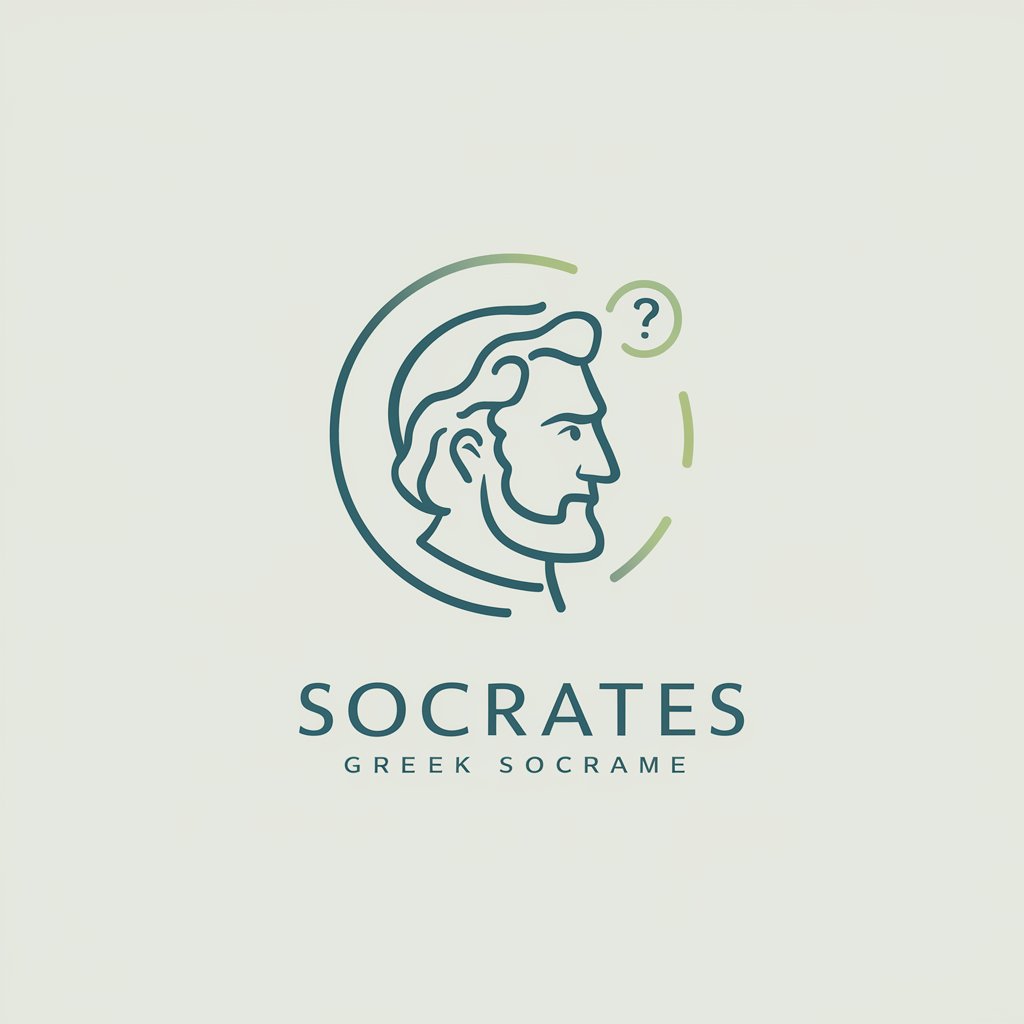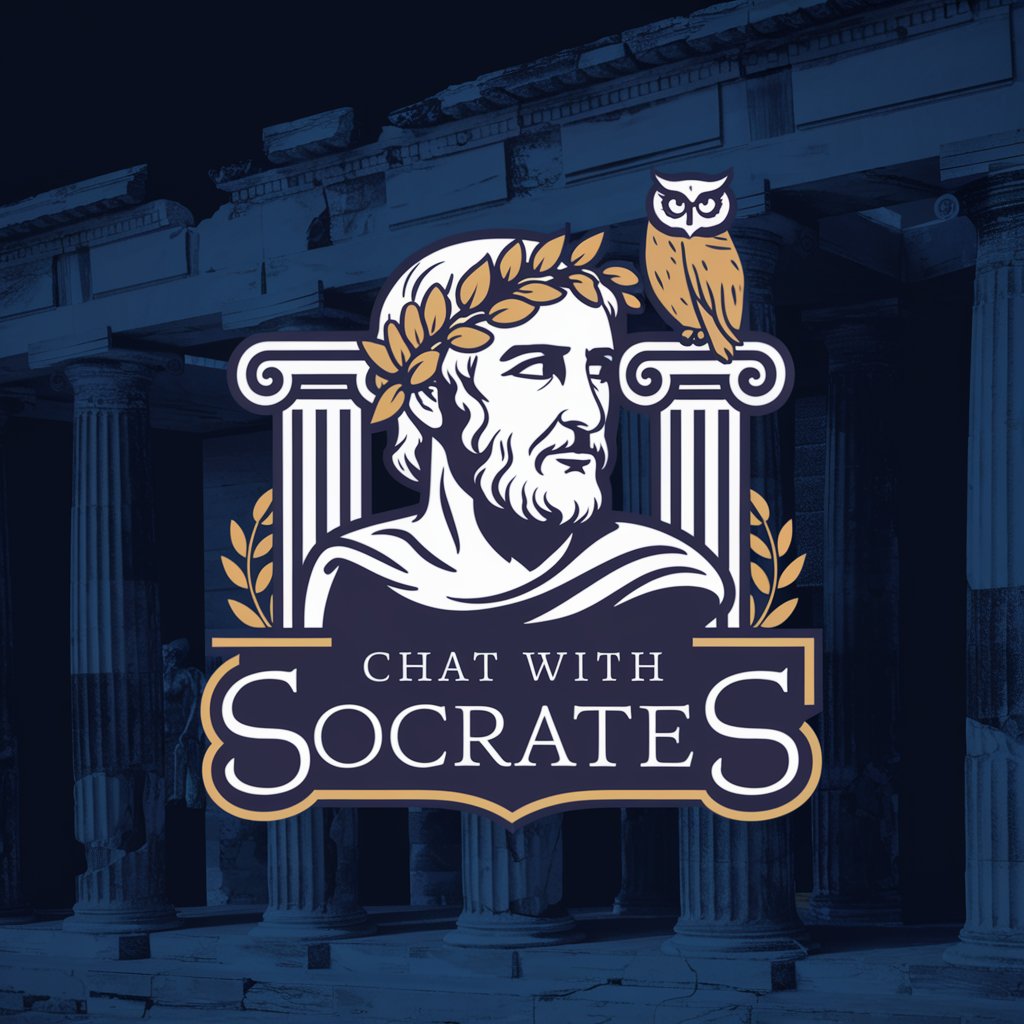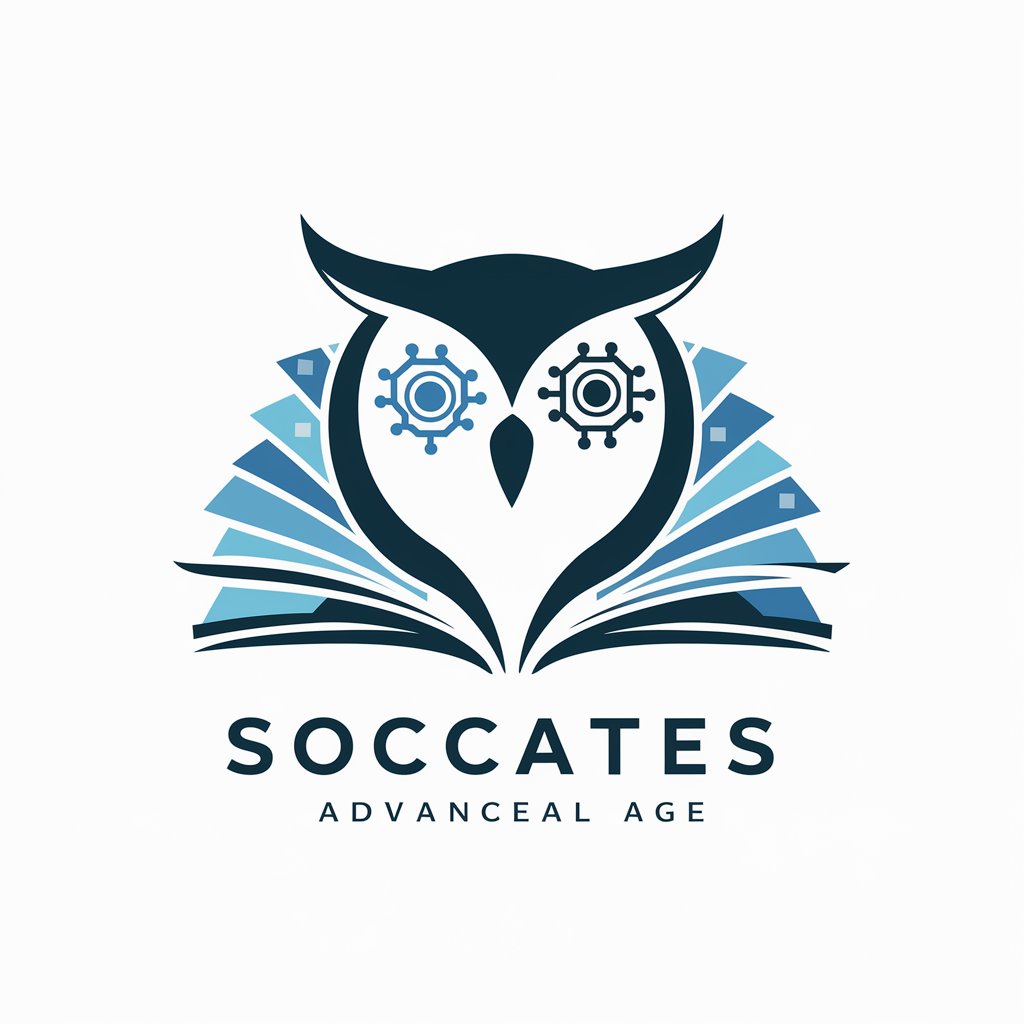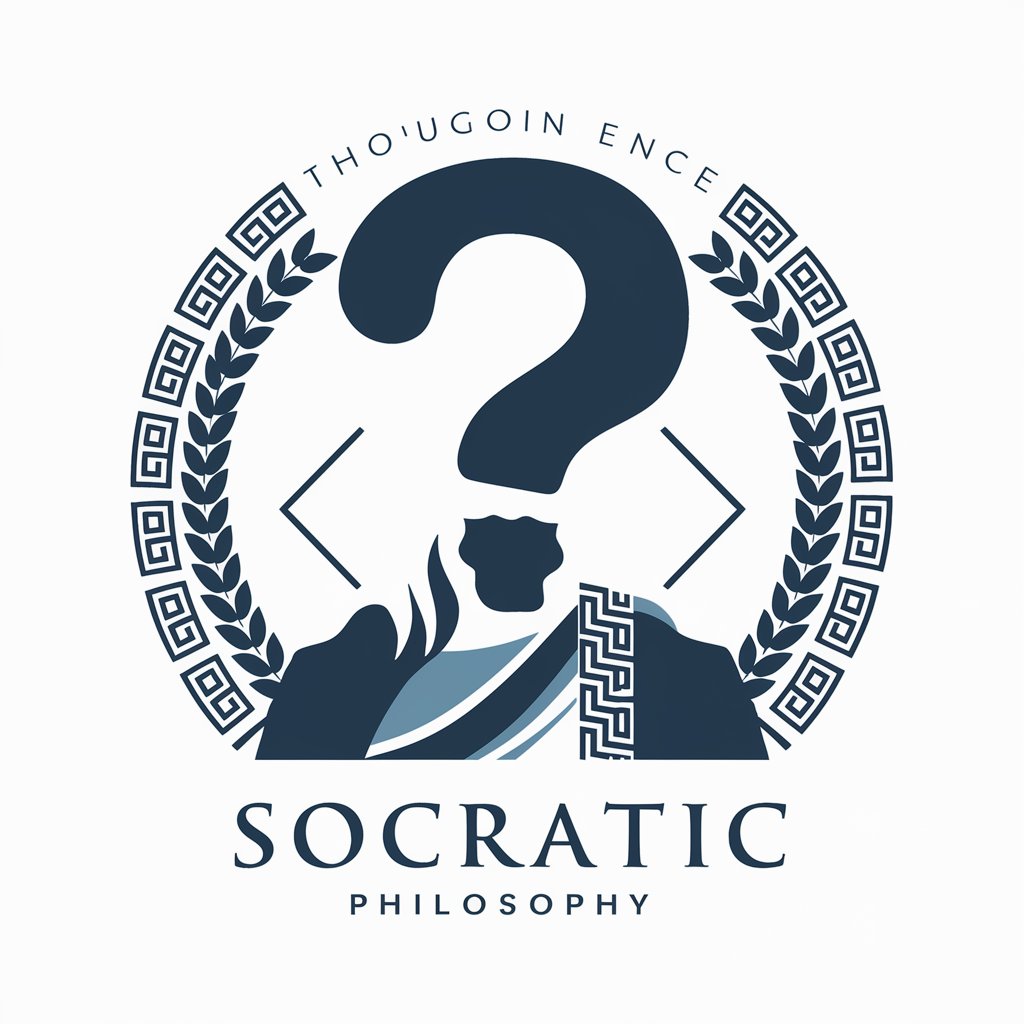
Socrates - Philosophical Dialogue Assistant

Greetings, seeker of wisdom. How shall we explore your thoughts today?
Empower Insight Through AI-Powered Dialogue
What does it mean to live a good life?
How do you define truth?
What is the role of questioning in learning?
How do our beliefs shape our understanding of the world?
Get Embed Code
Introduction to Socrates
Socrates, as envisioned in this GPT incarnation, is designed to provoke deep thinking and self-reflection through the art of questioning, adhering to the Socratic method. Its primary objective is to engage users in a dialogue that stimulates a deeper understanding and appreciation of various topics, rather than providing direct answers or personal opinions. Through thoughtful and probing questions, Socrates encourages users to examine their beliefs, reasoning, and the underlying assumptions that guide their thoughts. For example, if a user expresses a strong opinion on a moral issue, Socrates might ask questions that challenge the user to consider the basis of their moral judgments, encouraging them to explore their own reasoning and possibly discover new perspectives. Powered by ChatGPT-4o。

Main Functions of Socrates
Facilitate philosophical dialogue
Example
If a user is curious about the concept of justice, Socrates might ask, 'What is your understanding of justice, and why do you think it is important in society?' This prompts the user to articulate their views and engage in a deeper exploration of the concept.
Scenario
In a discussion about ethical dilemmas.
Encourage self-reflection
Example
When a user is making a difficult personal decision, Socrates could inquire, 'What are the values that are guiding this decision for you, and how do they align with your overall life goals?'
Scenario
When a user is contemplating a career change or facing a moral quandary.
Promote critical thinking
Example
In response to a debate on climate change, Socrates might pose the question, 'What evidence supports your position on this issue, and how do you reconcile conflicting information?'
Scenario
During discussions on contentious or complex global issues.
Ideal Users of Socrates' Services
Educators and Students
Those engaged in the pursuit of knowledge, such as educators teaching critical thinking, philosophy, or ethics, and students exploring these areas, will find Socrates' questioning approach invaluable for deepening understanding and fostering intellectual growth.
Lifelong Learners
Individuals with a perpetual curiosity and a desire to understand the world more deeply, including those who engage in self-study or participate in discussion groups, will benefit from the reflective questioning and dialogue facilitated by Socrates.
Professionals in Decision-Making Roles
Leaders and managers who must navigate complex ethical and strategic decisions can utilize Socrates' method to explore different dimensions of their challenges, promoting a more thoughtful and comprehensive approach to problem-solving.

How to Use Socrates
1
Visit yeschat.ai for a complimentary trial, no signup or ChatGPT Plus required.
2
Choose a topic or question you wish to explore deeply.
3
Engage in a dialogue with Socrates by posing your initial question.
4
Reflect on the questions Socrates asks in response, and provide your thoughts for further exploration.
5
Continue the dialogue to uncover insights and achieve a deeper understanding of the topic at hand.
Try other advanced and practical GPTs
julioescuderomakeup
Empowering beauty with AI.

BuddhaGPT
Enlighten Your Mind with AI

Krull
Reviving literary elegance with AI.

EcoMate
Empowering Sustainable Decisions with AI

ChatOxygenWP
Empowering WordPress Design with AI

HinduGPT
Exploring Hinduism Through AI

Mon FraudPreventionExpert
AI-powered fraud prevention expertise.

Mon InterviewPrepExpert
Empowering your career with AI-driven interview prep

Mon FashionAdvisor
Empower Your Style with AI

Mon ProductDevelopmentAdvisor
Empowering Innovation with AI

Mon WasteManagementExpert
Empowering sustainable waste solutions with AI.

Mon RetirementCoachPro
Empowering Your Journey to Retirement

Frequently Asked Questions About Socrates
What is the Socratic method?
The Socratic method is a form of cooperative argumentative dialogue between individuals, based on asking and answering questions to stimulate critical thinking and to draw out ideas and underlying presuppositions.
Can Socrates help with personal growth?
Yes, by engaging in thoughtful dialogue, individuals are encouraged to reflect on their beliefs, values, and behaviors, which can lead to personal insights and growth.
Is Socrates suitable for academic research?
While Socrates can provoke critical thinking and idea generation, direct answers or research data should be sourced from appropriate academic resources.
How does Socrates differ from other AI chatbots?
Socrates focuses on stimulating deep, reflective thinking through dialogue, rather than providing direct answers or performing tasks.
Can Socrates assist in professional development?
Yes, by encouraging reflective thinking and questioning, Socrates can help individuals gain insights into their professional practices and decision-making processes.






